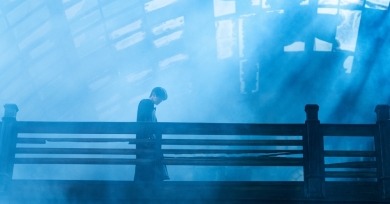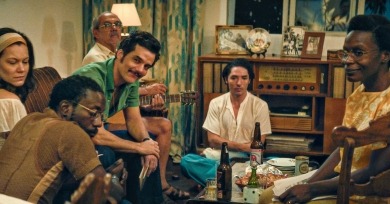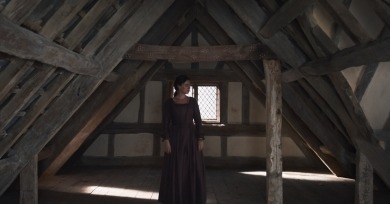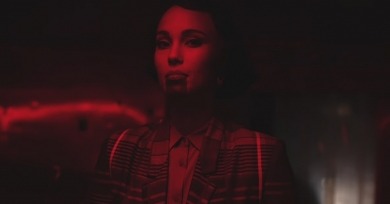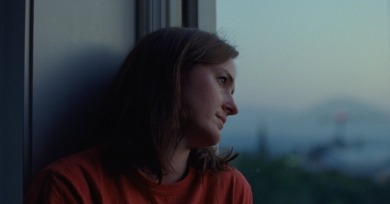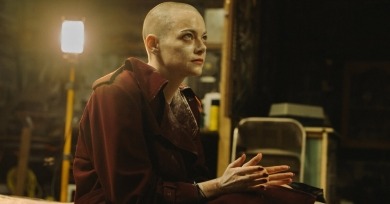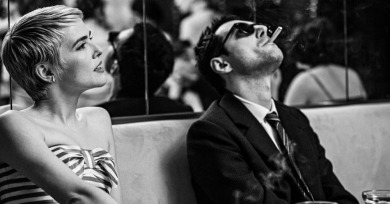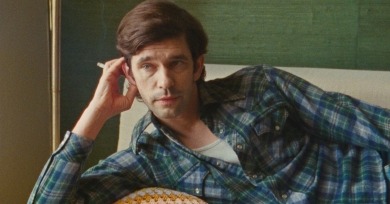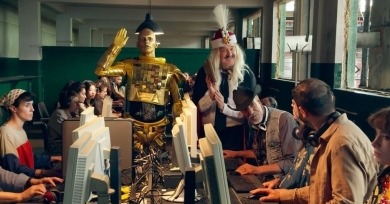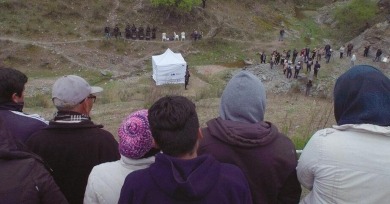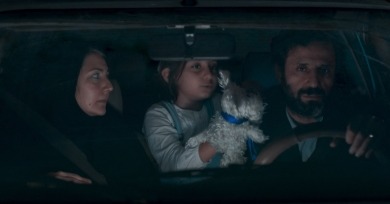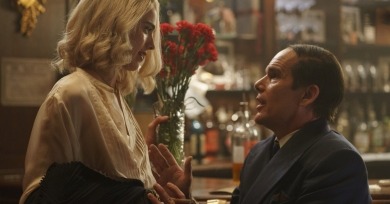Reviews
For all our anxieties around the obsolescence of the medium, Bi Gan is moved by an unwavering belief in its subversive powers. Resurrection is not a valentine so much as a manifesto, a rousing wake-up call to all that cinema can still do.
The Secret Agent is a thriller to be sure, but while it delivers the requisite underlying suspense, it also disperses its genre imperatives, hot-wiring this man-on-the-run vehicle to veer off in unpredictable digressions.
The grieving man from Mumbai has the downward stare and stooped shoulders of the touch-starved, his back perpetually stiffened into a forbidding carapace. This is Anand, the recessive center of Cactus Pears, Rohan Kanawade's semi-autobiographical first feature.
Hamnet is impeccably tasteful, the interiors exquisitely and naturally lit and the exteriors strikingly framed, but this tastefulness grows wearying, even stultifying.
Khalil Joseph asks the viewer to connect the dots between these places, figures, and events, both fiction and nonfiction, the point is not to figure it all out. BLKNWS is a movie to get lost in, like a hypnotic chopped-and-screwed tape.
Trier seems to be confronting the extent to which life and art coalesce in the lives of creative families, dangling the question of whether artistic genius can redeem one’s personal sins.
Her physical acting might be less obvious than what Poor Things demanded, but if we were to draw a parallel between Michelle Fuller and her Oscar-winning rendition of Bella Baxter, the former is a highly evolved version of the latter judging by how her character assimilates learned behavior.
To invoke another luminary of the New Wave, it is a mid-budget marriage of truth and spectacle of which Truffaut would have approved, the sort of which today has become the most endangered species of filmmaking. In short, it is a film made by the Slacker director who also gave us Dazed and Confused.
The film often feels like a one-act play. It is foremost an experiment, in the same sense as Linda Rosenkrantz’s original mission to document the daily to-dos of her friends.
The material is, of course, ripe for the picking, with Dracula/Nosferatu dramatizations spun regularly, each one more lifeless than the last. The logic of genAI, too, is by its own admission vampiric, receiving its life force by scraping the flesh of the internet.
Documenting the high-stakes Chocobar trial and unraveling the state’s deceptions requires a certain amount of linear and coherent storytelling, which Martel has traditionally resisted in her films.
Justly acclaimed for her nonpareil handling of dynamic, kinetic action, Bigelow has now stepped up from crime and mayhem in the streets and war in foreign lands to enter the ultimate arena of high-stakes conflict.
If the cinema of Jafar Panahi has evolved over the past 30 years, partly because of changing circumstances, one can also draw a through line. These movies have much in common—starting with the fact that they are uniformly excellent, challenging, and engaged.
With its breathless, alert script, Blue Moon manages to keep expanding and contracting from its central dramatic concern, using the breakdown of Rodgers and Hart's creative partnership to tease out age-old paradoxes between art and commerce, hope and despair, commitment and compromise.
